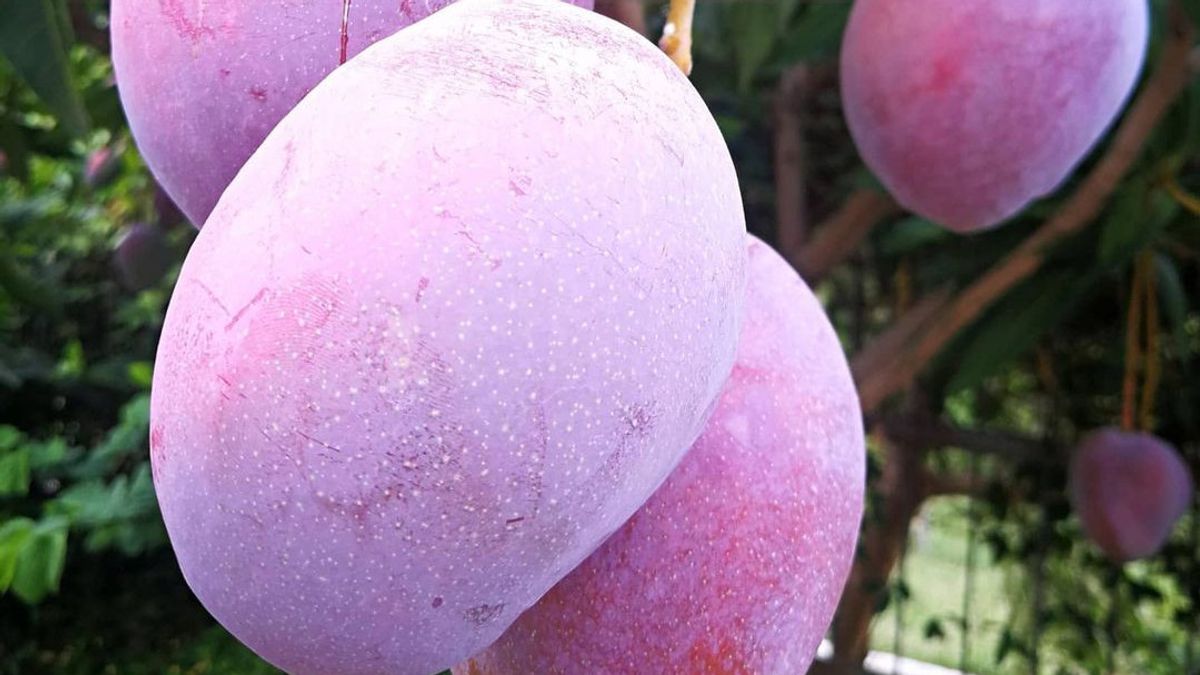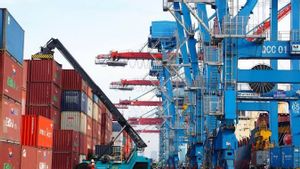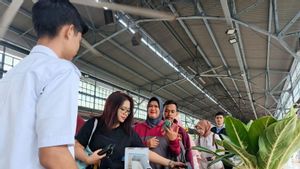JAKARTA - In Japan, there is the most expensive mango variety in the world. Miyazaki mango, the name is. Mango is grown in Miyazaki City.
Well, it is said that there was a farmer from India, his name was Sankalp Singh Parihar. Four years ago, Sankalp Singh Parihar traveled to the city of Chennai, South India in search of hybrid coconut seeds.
During the train ride, he chatted with a man sitting across from him. When the man found out that Parihar was a farmer, he offered to sell him a special mango tree for 2,500 rupees. Out of curiosity, he decided to buy the tree.
"I don't know what kind of mango it is, but I named it Damini after my mother and grew it," said Parihar, who lives in the city of Jabalpur in central India, quoted from era.id Wednesday, June 22.
“I grow it like a regular mango plant. But, a few months later, I saw that (the mango tree) had developed a beautiful red color."
When word got out that Parihar had a special red mango variety in his field, the farmer was approached by businessmen from the Indian cities of Surat and Mumbai.
“Only when they offered me more than 21,000 rupees. For that (mango tree), I realized it was something valuable," said Parihar.
The special mango that happened to be found was actually the Japanese Miyazaki mango, which is considered to be the most expensive mango variety in the world.
The world's most expensive mango is known as the "Sun Egg," Miyazaki is often found at special auctions in Japan. According to local Japanese media reports, a box containing two Miyazaki mangoes sold for half a million Japanese yen (Rp65 million) in 2019.
On average, one Miyazaki mango costs $50 and is considered a luxury gift. It is topped with premium chocolate, not the usual chocolate as a hand.
This mango has a deep red skin, a melt-in-your-mouth texture, and a very sweet taste.
"The flesh (mango fruit) is like jelly, the color is stunning, and the outer skin can even be eaten," said Parihar.
They originate from Miyazaki prefecture on the southern Japanese island of Kyushu and are grown under strict conditions with quality controls to ensure a sugar content of 15 percent and a minimum weight of 350 grams.
Japanese growers usually suspend mangoes in small nets in a temperature-controlled greenhouse setting. This ensures that the mango gets enough sunlight to develop its characteristic red skin.
This allows it to fall naturally into the net as it ripens and is sweet. However, according to Parihar, mangoes can be grown organically in India's cool and humid climate without needing special attention.
“Since I didn't know what kind of mango this was, I grew it like I would grow regular Indian varieties like Alphonso,” he said.
Now, he wants to make the world's most expensive mango more accessible to Indian farmers.
“My vision is that every Indian household should be able to afford these mangoes,” he said.
“In Japan, it is expensive because it is grown in an expensive environment. In India, we can grow it naturally and reduce expenses."
Currently, Parihar has managed to plant around 52 mangoes in his garden. Despite the exorbitant prices, he and his wife, Rani have decided not to sell the fruits.
"These are our babies and our focus right now is to continue raising them and using the fruit seeds to plant new ones," he said.
The couple plans to continue growing this special mango variety until it fills their entire garden. But apart from that, the attention they suddenly received made them worry about being robbed. So they hired an army of nine guard dogs and three security guards to protect the mango all time.
"Last year, after a local news channel reported that we had these mangoes, a thief broke into and stole 14 mangoes," he said.
“So now, we have hired a team of guards and are paying them 8,000 rupees (Rp1.5 million) every month. I'd rather pay for security than lose this mango, which to us is worth more than money," he continued.
The English, Chinese, Japanese, Arabic, and French versions are automatically generated by the AI. So there may still be inaccuracies in translating, please always see Indonesian as our main language. (system supported by DigitalSiber.id)













